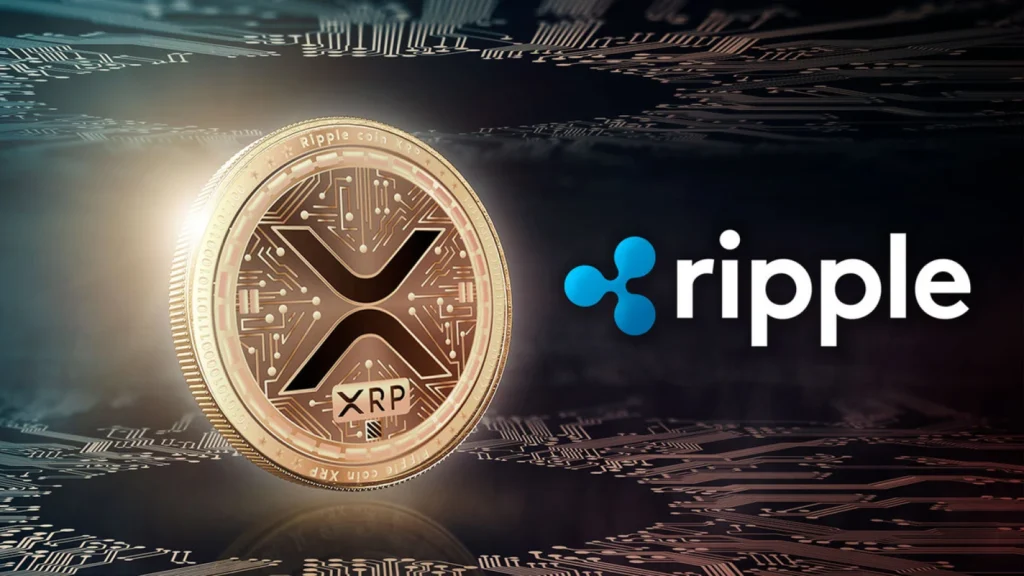The Ripple Company, which is very famous for its digital payment solutions based on blockchain technology, is taking large leaps into the European market with its recent move to penetrate the growing Portugal ecosystem for cryptocurrency. Ripple is entering into a strategic partnership with Portuguese financial institutions as well as with fintech startups to position its crypto XRP as a major player in the rapidly emerging country blockchain space. According to the arrangement, the partnership will most likely strengthen Ripple’s presence in Portugal while underlining global payment and financial services utility of XRP.
Ripple’s Growing Influence in Europe
The thing about Ripple is that it has had a significant influence in Europe, having been able, over many years, to collaborate with banks and financial institutions on making cross-border payments using RippleNet-a network powered by the cryptocurrency XRP. It marks a deepened foray into crypto-Portugal, the latest country to earn for itself a name as among those destinations most friendly to cryptocurrency in Europe.
Economically viable conditions for crypto trading and progressive frameworks for blockchain technology are opportunities for Ripple along with other blockchain companies wishing to extend their business reach. In this light, Ripple signaled its move into Portugal’s crypto ecosystem as one of a bigger strategy to put XRP in the same league as those digital assets capable of solving real-life problems, such as those pertaining to soaring fees and slow transaction times with conventional banking systems.
Portugal’s Crypto-Friendly Environment
For many years, Portugal has successfully marketed itself as a hotspot for cryptocurrency innovation through its rather forward-looking approach to digital assets. It has a very progressive taxation policy concerning crypto holders, whereby capital gain realized, in a few scenarios, in cryptocurrency investments is not taxed. As a result, there has been a rush of crypto enthusiasts, entrepreneurs, and investors looking for a haven and so consider Portugal to be that perfect place to launch or grow their blockchain-related business.
Apart from these tax benefits, Portugal has also made sure to move along the lines of developing that friendly regulatory environment regarding blockchain technology. The growth of crypto startups has been phenomenal, and more and more institutions have been adopting blockchain for use in financial service delivery, supply chains, and beyond. Ripple’s decision to target such an environment means it recognizes the willingness in such an ecosystem that would create fertile ground for blockchain growth and possibility of XRP becoming big in transforming the payment system.
XRP and Its Role in Cross-Border Payments
XRP, the cryptocurrency native to Ripple, is intended to help solve one of the greatest cross-border payment problems: inefficiencies in cross-border payments. These payments tend to be slow, expensive, and fraught with problems such as high transaction fees, delays caused by currency conversion, and lack of transparency.
With XRP, Ripple is therefore looking to resolve these issues: fast, low-cost international transactions. Using XRP as the intermediary currency, RippleNet users will be able to send their money anywhere across the world within seconds and with little transactional cost. Of greatest benefit are commercial enterprises and individuals making cross-border remittances, where speed and cost matter significantly.
This new collaboration in Portugal promises to showcase the relevance of XRP in alleviating some of these pain points. The network of Ripple, which is said to be running on blockchain technology with XRP at its core, is expected to be put in use by Portuguese banks, payment providers, and remittance service providers to facilitate quicker and cheaper solutions in international transfer of money.
Ripple’s Strategic Partnership with Portuguese Financial Institutions
However, the partnership between Ripple and the Portuguese financial institutions opens an interesting chapter in the development of both companies and the entire Portuguese crypto ecosystem. In all of these, Ripple’s forging of partnerships with banks and other fintech companies in that country offered an opportunity to extend the use of XRP and even greater use of cryptocurrencies in general.
Again, they represent Ripples greater thrust into all those markets where remittances are significant. Portugal is one of the countries at the forefront of Europe regarding outbound remittances, particularly in the direction of its former colonies in Africa, South America, and Asia. Here, XRP can prove its mettle within the corridors as it would make cross-border payments to and from Portugal easy for many of those corridors, which otherwise suffer from considerable fees and long wait times.
Finally, this partnership should endow Portuguese financial institutions with a solid, scalable blockchain node to improve their payment processes. Specifically, this collaboration will focus on the integration of RippleNet and XRP as mechanisms for international settlements in these institutions’ payment processes.
The Future of XRP in Portugal and Beyond
There are implications, too, of Ripple’s partnership beyond Portugal. It has the potential to shape Ripple’s further foray into other European regions. The more the European Union becomes interested in defining a regulatory framework for cryptocurrencies, the more the effects of growing adoption of the use of blockchain technology in the region become evident for Ripple.
Also, Portugal’s good regulatory environment towards digital currencies is most likely to inspire other countries to do so and build a favorable environment that Ripple would have on its own for the use of XRP. Demand for the digital currency is poised to grow further as RippleNet gets adopted across other European countries.
The move of Ripple into Portugal further showcases the increasing role that digital assets and blockchain solutions will form in the future of finance. Therefore, the demand for the cryptocurrency in the form of XRP tends to increase as more financial institutions, governments, and enterprises adopt blockchain.
Challenges and Opportunities Ahead
It is true that the partnership with Portugal is one of the great developments for Ripple. However, there are also challenges that lie ahead for. The challenges of rising regulations grow as Ripple attempts to operate in a foreign automated world with Portugal which is not bad with crypto. Some European countries will introduce very strict regulations or will resist significantly the introduction of blockchain technology. Ripple will require local compliance and agility about the changed regulatory environment.
On the other side, great opportunities for growth exist. With expansion in Portugal and more in the rest of Europe, Ripple is well positioned for the global adoption of blockchain technologies, better coordination for cross-border transactions, and worldwide speedier, better financial services.
Conclusion
The newest partnership of Ripple in Portugal creates another meaningful milestone in the progressive march of the company towards being a company that manages a reaching utility in the global payments space with the use of XRP. To lead Portugal’s cryptocurrency-friendly ecosystem, Ripple is staking its place in innovative solutions for cross-border payments, right at the forefront of growing blockchain adaptation within the country.
Since Ripple is busy making networks across Europe and pushes forward in increasing exposure of XRP, the future looks bright for this asset to drive greater adoption and change global payments. This could also mean affirmative of a new financial future that is more inclusive, efficient, and cheap-not to mention one where XRP could very well figure prominently in the world of payments.





